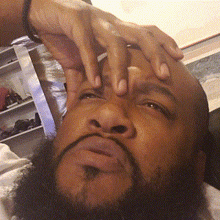Just finished the book, and Robin goes off the rails towards the end. He argues that Thomas has this racial war battle fantasy that influences his thinking. And that heightened racial animosity is necessary to keep specifically poor Black people from avoiding their downside risks. Robin attempts to make this argument more plausible by tying this racial battle argument in with older criticisms of integration. But it is not convincing at all as it requires several logical leaps, and Robin's lack of engagement with the concepts of regulatory capture undermines his analysis.
The most interesting and engaging part of the book is where Robin analyzes Thomas's belief in the positive potential of Black patriarchy. Robin convincingly argues Thomas's upbringing and strong relationship with his grandfather leads him to believe in the potency of a strong male figure in the Black household. Compared to his lack of trust, respect, and disdain for his Black woman family members. This leads to Thomas's belief that the reconstruction of the Black man's status and power within the Black household is crucial to the progress of Black people. Thomas is clearly misogynistic in how he articulates the view of both his woman family members and the general Black woman headed household. It is here where Robin does his best job of marrying the tenets of some Black nationalist figures and Thomas's belief system, persuasively arguing that this impacts Thomas's dislike of liberal policies.






